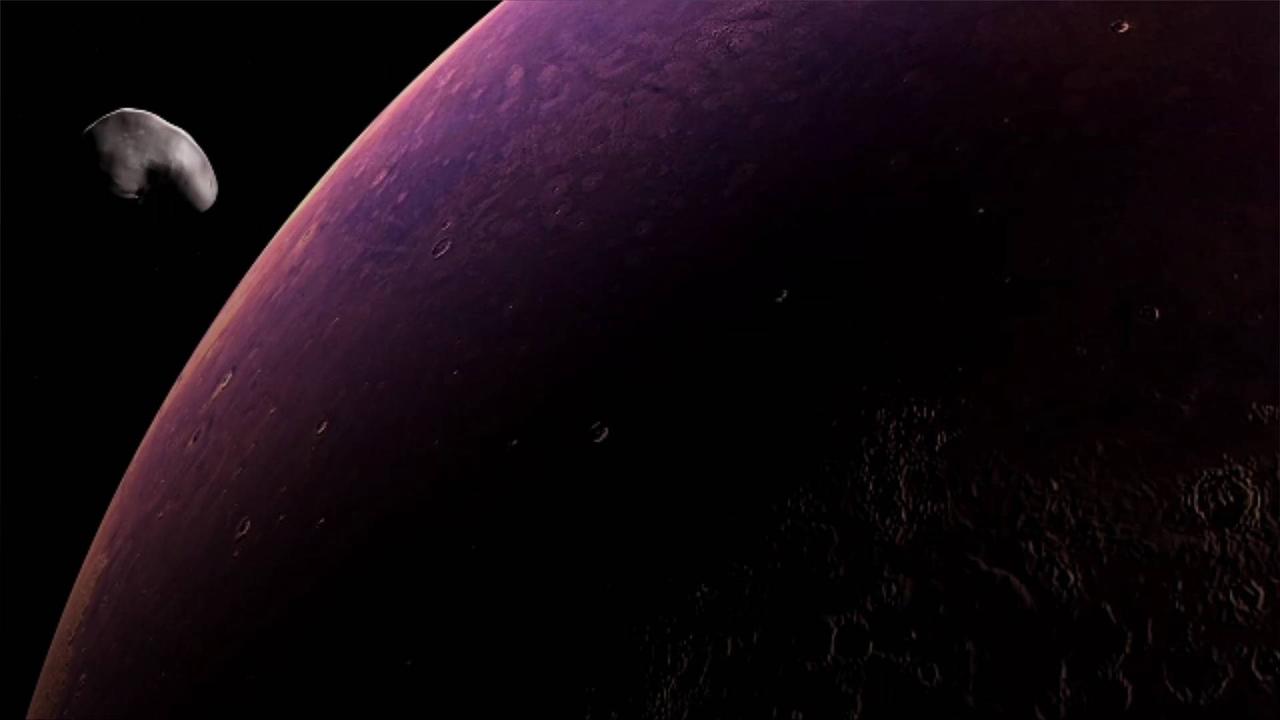Scientists Use Meteoroid Shockwaves to Locate New Craters on Mars

Scientists Use Meteoroid Shockwaves to Locate New Craters on Mars
Scientists Use , Meteoroid Shockwaves , to Locate New Craters on Mars.
Scientists have located new craters on the surface of Mars using shockwaves caused by meteoroids that struck the planet.
'The Guardian' reports that the new craters will help scientists build a more accurate picture of the deep internal structure of the red planet.
.
This is the first time we have felt and heard an impact on another planet, Professor Raphael Garcia, Planetary seismologist at the Higher Institute of Aeronautics and Space at the University of Toulouse, via 'The Guardian'.
The seismic data recorded by Nasa’s InSight lander included four impact events that the researchers explored in detail.
The seismic data recorded by Nasa’s InSight lander included four impact events that the researchers explored in detail.
Signs of new craters were then found using Nasa’s Mars Reconnaissance Orbiter.
Photos taken before and after revealed new black patches on the ground, which were used to pinpoint the impact sites.
One meteoroid crashed into Mars on September 5, 2021, resulting in three distinct shock waves.
.
The first shockwave was created when the space rock slammed into the Martian atmosphere traveling at high speeds.
.
The second occurred when the meteoroid exploded just miles above the surface of the planet, creating multiple fragments.
Those fragments then smashed into the ground, creating several fresh craters.
.
'The Guardian' reports that the data could prove to be extremely valuable for planetary scientists studying Mars


![NASA's Perseverance rover spots thousands of 'Unusual' white rocks on Mars | Oneindia News [Video]](https://video.newsserve.net/300/v/20240406/1372007728-NASA-Perseverance-rover-spots-thousands-of-Unusual.jpg)
![Photos from NASA’s Curiosity rover suggest Mars had more water for longer than previously thought [Video]](https://video.newsserve.net/300/v/20240327/1371057008-Photos-from-NASA-Curiosity-rover-suggest-Mars.jpg)

![NASA Reestablishes Connection With Distant Voyager 1 Space Probe [Video]](https://video.newsserve.net/300/v/20240426/1373823980-NASA-Reestablishes-Connection-With-Distant-Voyager-Space.jpg)
![Dubai Floods: NASA posts pics of flooded UAE areas after 6 billion cubic metres of rain| Oneindia [Video]](https://video.newsserve.net/300/v/20240423/1373495044-Dubai-Floods-NASA-posts-pics-of-flooded-UAE.jpg)